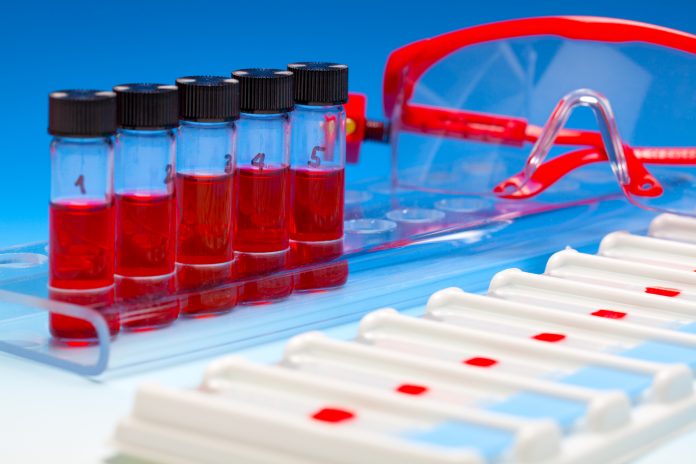
An exosome-based liquid biopsy accurately detected 97 percent of stage 1–2 pancreatic cancers when combined with the biomarker CA 19-9 (cancer antigen 19-9), which is a known marker of the disease but not considered specific enough alone as a screening tool. The researchers used genome-wide expression profiling of patient and normal blood samples to develop and validate the signature.
“We have established a signature that combines exosomal microRNAs and cell-free DNA to robustly identify patients with early-stage pancreatic cancer,” said Caiming Xu, MD, PhD, a postdoctoral fellow and member of the research team.
The research was led by Ajay Goel, PhD, chair of the department of molecular diagnostics and experimental therapeutics at City of Hope. It was presented at the American Association for Cancer Research (AACR) Annual Meeting 2024, held April 5–10.
“Pancreatic cancer is one of the most fatal malignancies, in large part because the majority of patients are diagnosed only after the cancer has already metastasized,” said Goel. “It is of utmost importance to diagnose patients as early as possible so they have the opportunity to receive potentially curative surgery and treatment.”
The National Cancer Institute has estimated that there will be 64,050 people diagnosed with pancreatic cancer in the United States alone in 2023, and the disease is projected to become the second leading cause of cancer death in the U.S., behind lung cancer by that year. While the five-year relative survival rate for patients diagnosed at the earliest stages is 44.3 percent, it is only 3.2 percent for those diagnosed with metastatic disease.
Xu added that early detection of pancreatic cancer remains challenging due to the nonspecific symptoms of the disease and because the pancreas is located deep within the abdomen, where it cannot be easily palpated during physical examination.
Exosomes act as intraceullar communicators and are shed by cancerous and healthy cells into blood.
“Exosomes retain the cytoplasmic content of the cell from which they were shed, essentially replicating the biology of their tissue of origin,” Xu explained. The researchers have identified eight microRNAs that are uniquely found in exosomes shed from pancreatic cancers. They combined these with five cell-free DNA markers found in the blood of patients with pancreatic cancer to develop a signature associated with this disease.
This study sought to evaluate the liquid biopsy in large, prospective cohorts from multiple institutions and countries. It enrolled several hundred pancreatic cancer patients and healthy controls from Japan, the U.S., South Korea, and China.
The liquid biopsy signature was trained on information from the Japanese cohort and validated in the cohorts from the United States, South Korea, and China. The test detected 93 percent, 91 percent, and 88 percent of cancers respectively. Further, when the team combined their signature with the pancreatic cancer marker CA19-9, the liquid biopsy test accurately detected 97 percent of stage 1–2 pancreatic cancers in the U.S. cohort.
“Our approach offers a liquid biopsy test superior to CA19-9 measurement alone for early-stage disease,” Goel said. “Moreover, we evaluated the effectiveness of our assay in several different populations, including populations of different ethnic and geographical backgrounds.”
Additional research is needed, but the team noted this test might benefit certain groups with a high risk for pancreatic cancer, such as those with chronic pancreatitis, new-onset diabetes, or a family history of pancreatic cancer.













